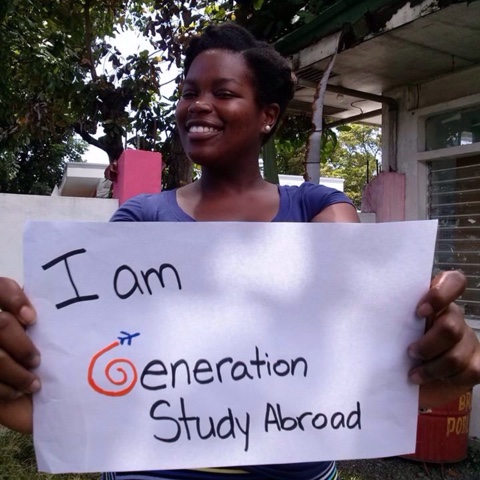The Responsibility of a Global Citizen
In elementary school I learned how to play the flute. I was awful during the beginning. I didn’t know the correct way to blow into the instrument and during the holidays I performed for my family. My mother would always say “Good job, honey.” However, she would always discourage me from giving an encore performance. As I entered high school, I was given the option to continue my musical career or put down the flute and try something else. I made the decision to join the band which would soon lead me to a life-changing tour of Europe. This two week concert tour, placed me on my path as a global citizen.
A global citizen is typically defined as someone who identifies with a global community rather than their citizenship to a particular nation. They feel a sense of belonging to the world and others around the globe. Despite the feeling of belonging, the definition lacks a sense of responsibility to others. My experience with the International Youth Council, Peace Corps, and HBCUs Abroad adds another dimension to the definition. It is the responsibility of a global citizen to develop and empower the youth to become citizens of the world.

I was introduced to youth development after coming back from my time in Costa Rica. Searching for ways to become deeply involved in international affairs, I came across Asha Castleberry, a co-founder of the International Youth Council (IYC). As a fellow Hamptonian, I worked with her as a volunteer and eventually joined the executive board as the Global Chapters Director. My work with IYC allowed me facilitate workshops at events such as the United Nations Youth Assembly. Youth leaders from around the world convene at this event to unify their voice for social, economic, and environmental progress. Experiences like these allow you to see youth development in action. However, I needed a closer look at youth development. In July of 2014, I embarked on a 27 month journey to practice youth development with a grassroots perspective. As Peace Corps volunteer in the Philippines, I work at the local university where the students have a natural global mindset due to Facebook. They can log in and watch the worlds reactions to the Miss Universe Pageant, and even stay updated with both the US and Philippines Presidential elections. To enhance their international scope with relevance to their community, volunteers in youth development, like myself, facilitate leadership workshops, life skillssymposiums and events focused on civic engagement and international education.
The Peace Corps has three main goals and the third goal is to promote a better understanding of other cultures on the part of Americans. Through my blog, The Natural Travelista I share my stories to promote understanding of all the cultures in which I interact. However, my story alone is not enough. I remember returning from study abroad program, participating in various speaking engagements. Those speaking engagements were imperative in building global citizens. I realized it was time to share other stories similar to mine. That is when I launched HBCUs Abroad.

HBCUs Abroad is created to promote students and alumni of historically black colleges and universities who have studied, interned, or volunteered abroad. This aims expand the network of global citizens within the HBCU community and motivate students to seek out opportunities for international experience. HBCUs Abroad was developed out of the Institute of International Education: Generation Study Abroad initiative as a call to action. There was sense of responsibility for me to encourage others to become citizens of the world.

My experience in youth development gives new meaning to the term “Global Citizen.” It is not only about traveling around the world but actively being involved in it. It means developing the youth to be citizens of the world. That is our responsibility. That is the life of a global citizen. - The Natural Travelista